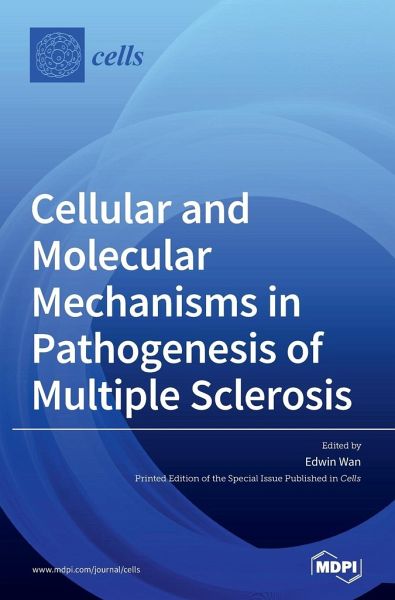
Cellular and Molecular Mechanisms in Pathogenesis of Multiple Sclerosis
Versandkostenfrei!
Versandfertig in 1-2 Wochen
59,99 €
inkl. MwSt.

PAYBACK Punkte
30 °P sammeln!
Multiple sclerosis (MS) is one of the most common neurological disorders in young adults. The etiology of MS is not known, but it is generally accepted that it is autoimmune in nature. Our knowledge of the pathogenesis of MS has increased tremendously in the past decade through clinical studies and the use of experimental autoimmune encephalomyelitis (EAE), a model that has been widely used for MS research. Major advances in the field, such as understanding the roles of pathogenic Th17 cells, myeloid cells, and B cells in MS/EAE, as well as cytokine and chemokine signaling that controls neuroi...
Multiple sclerosis (MS) is one of the most common neurological disorders in young adults. The etiology of MS is not known, but it is generally accepted that it is autoimmune in nature. Our knowledge of the pathogenesis of MS has increased tremendously in the past decade through clinical studies and the use of experimental autoimmune encephalomyelitis (EAE), a model that has been widely used for MS research. Major advances in the field, such as understanding the roles of pathogenic Th17 cells, myeloid cells, and B cells in MS/EAE, as well as cytokine and chemokine signaling that controls neuroinflammation, have led to the development of potential and clinically approved disease-modifying agents (DMAs). There are many aspects related to the initiation, relapse and remission, and progression of MS that are yet to be elucidated. For instance, what are the genetic and environmental risk factors that promote the initiation of MS, and how do these factors impact the immune system? What factors drive the progression of MS, and what are the roles of peripheral immune cells in disease progression? How do the CNS-infiltrated immune cells interact with the CNS-resident glial cells when the disease progresses? What is the role of microbiome in MS? Can we develop animal models that better represent subcategories of MS? Understanding the cellular and molecular mechanisms that govern the pathogenesis of MS will help to develop novel and more specific therapeutic strategies that will ultimately improve clinical outcomes of the treatments. This Special Issue of Cells has published original research articles, a retrospective clinical report, and review articles that investigate the cellular and molecular basis of MS.












